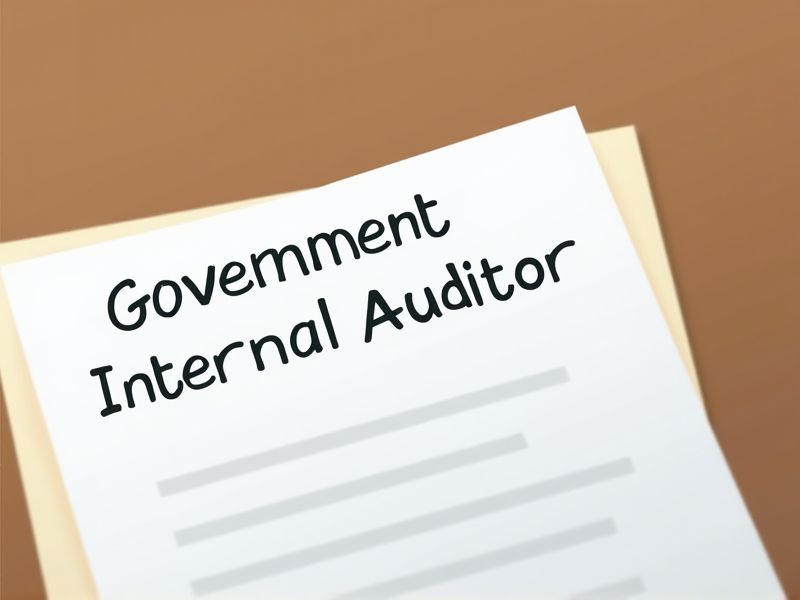
Government Internal Auditors play a crucial role in ensuring accountability and transparency in public sector financial management. Certification provides them with a framework of methodologies and ethical standards essential for auditing complex government structures. Without certain certifications, auditors may lack the specialized knowledge to identify inefficiencies and potential risks within governmental operations. Here are some key certifications that can be vital for a Government Internal Auditor.
Certified Internal Auditor (CIA)
Governments require Certified Internal Auditors to ensure adherence to international auditing standards, which enhances the credibility of financial reporting. The CIA credential demonstrates a professional's expertise in risk management and internal control, critical for mitigating fiscal risks in public administration. Government processes often involve complex regulatory frameworks, and a CIA is equipped to navigate these intricacies, ensuring compliance and efficiency. CIA-certified professionals bring an objective perspective to government auditing, promoting transparency and accountability in the use of public resources.
Certified Government Auditing Professional (CGAP)
Holding a Certified Government Auditing Professional (CGAP) certification ensures that government internal auditors possess advanced knowledge specific to public sector auditing standards and practices, which enhances oversight and accountability within government operations. With credentialed expertise, auditors are better equipped to identify inefficiencies and inconsistencies in governmental processes, leading to improved financial management and resource utilization. The certification establishes a recognized standard of excellence, ensuring that auditors adhere to high ethical principles and professional practices essential in public stewardship. Government bodies benefit from having certified professionals who can effectively contribute to transparent and reliable financial reporting, which aids in maintaining public trust.
Certified Information Systems Auditor (CISA)
Government agencies handle vast amounts of sensitive data, making CISA certification crucial for internal auditors to ensure effective information system controls. The certification equips auditors with the skills to identify vulnerabilities and enforce security measures that protect against cyber threats. CISA-certified auditors provide assurance that information systems comply with relevant regulations and standards, minimizing the risk of legal repercussions. By validating an auditor's expertise, the CISA credential enhances credibility and trust in the auditing process, essential for government transparency and accountability.
Certified Fraud Examiner (CFE)
The presence of Certified Fraud Examiners (CFEs) in government internal auditing enhances the ability to detect financial irregularities, thus mitigating potential losses from fraud. CFEs bring specialized skills in forensic accounting that enrich the audit process. The integration of CFEs ensures compliance with regulatory standards by validating the integrity of governmental financial records. Their expertise supports risk management strategies, reducing the likelihood of fraud occurrences within government entities.
Certified Public Accountant (CPA)
Certified Public Accountants are required for government internal auditors because their expertise ensures adherence to established accounting standards and regulations. Their training in auditing and financial analysis provides an essential framework for assessing financial risks within governmental entities. CPAs bring credibility and trustworthiness, enhancing the transparency and reliability of financial statements. Their analytical skills help detect and prevent inefficiencies, fraud, and mismanagement of public funds.
Certified in Risk and Information Systems Control (CRISC)
Increased regulatory requirements demand government internal auditors to be well-versed in risk management and control, which CRISC certification addresses effectively. The certification equips professionals with tools to identify and assess IT risks critical for ensuring government data integrity and security. CRISC-certified auditors have the expertise to implement robust information systems controls, reducing the likelihood of breaches and enhancing public trust. Government agencies benefit from auditors with CRISC due to improved decision-making processes tied to risk management frameworks.
Certified Government Financial Manager (CGFM)
The CGFM credential equips internal auditors with specialized knowledge of government financial processes and controls, improving accuracy and compliance in public sector auditing. This certification ensures auditors understand the complexities of government accounting and budgeting, helping to identify inefficiencies and areas for cost reduction. Possessing a CGFM demonstrates a commitment to maintaining high ethical standards and accountability, crucial for transparent governance. The certification enhances the auditor's credibility and trustworthiness, fostering greater confidence among stakeholders in the government's financial management practices.
Certified Management Accountant (CMA)
A Certified Management Accountant (CMA) credential provides government internal auditors with advanced financial management and strategic planning skills. These skills enhance the auditor's ability to assess and improve fiscal efficiency and resource allocation in government operations. Having a CMA background informs their understanding of compliance and risk assessment, critical for maintaining transparency and accountability. The credential also ensures auditors maintain a high standard of ethics, aligned with government values and public trust.
Certified Forensic Accountant (CrFA)
When government internal auditors incorporate a Certified Forensic Accountant, the accuracy and reliability of financial investigations increase, enhancing credibility. The complexity of governmental financial activities often requires specialized skills to detect fraud, which CrFAs provide. Their expertise in tracing illicit financial activities supports the enforcement of regulations and promotes transparency. Utilizing CrFAs can mitigate financial discrepancies, ultimately safeguarding public resources.
Certified Quality Auditor (CQA)
Government agencies require Certified Quality Auditors (CQA) to verify compliance with both internal and external quality standards. CQA proficiency leads to improved process efficiency and reduced operational risks. Their specialized skills can enhance accountability and transparency in governmental auditing processes. Having CQAs onboard in government roles fosters stakeholder trust by ensuring audits adhere to recognized quality benchmarks.
Summary
With certifications, you enhance your credibility in assessing government processes. This specialized expertise enables you to identify inefficiencies and suggest improvements more effectively. Such qualifications often lead to increased trust from colleagues and superiors, facilitating smoother collaboration. Consequently, the overall quality of governance and resource management can improve significantly.
